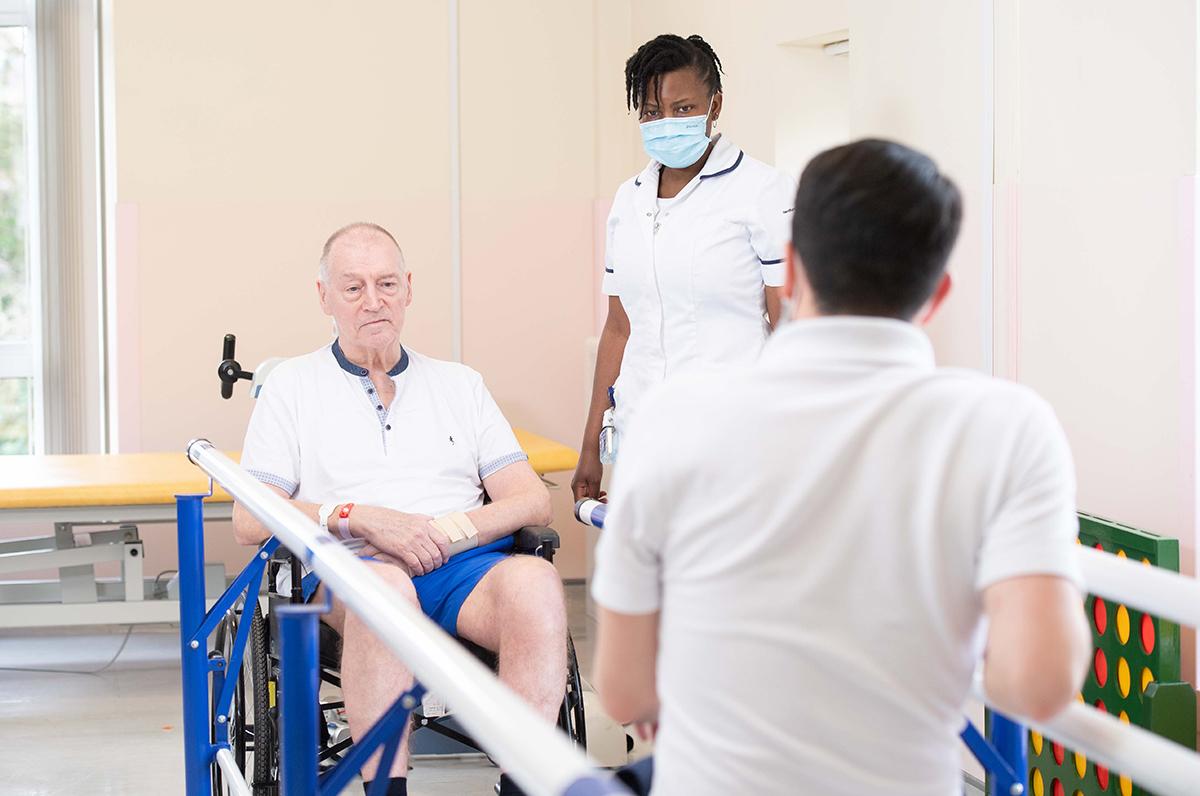CSP reacts to the latest data, and asks members to organise around their employers’ results

New data show a stressed, stretched, and under-staffed health service in England.
Some improvements in NHS staff experience are seen between 2022 and 2023. But, in general, NHS physiotherapy workers report no better a experience in the workplace than compared to before the Covid-19 pandemic.
Concerns around pay remain high – with only 33 per cent of physiotherapists and 23 per cent of AHP support workers – reporting satisfaction with their salary. Likewise do those around staffing levels –with only 27 per cent of physiotherapy respondents agreeing they have enough colleagues to do their job properly.
Persistent differences in staff experiences - based on ethnicity, disability, and other factors – are also seen in the survey. Only 55 per cent of Black, Asian and minority ethnic physiotherapists reported being confident that their employer acts fairly with regard to career progression; compared to 66 per cent of white physiotherapy respondents.
Sexual harassment is a workplace issue
For the first time, the survey asked staff if they had been targeted by unwanted behaviour of a sexual nature. This change follows NHS England’s 2023 launch of their Sexual Safety Charter.
Sixteen per cent of physiotherapist respondents reported they had experienced inappropriate sexualised conversations, touching, or assault from patients or service users.
We see a gendered dimension to this behaviour, with 18 per cent of female physio respondents – compared to nine per cent of male – noting inappropriate behaviour from service users.
Jim Fahie, CSP assistant director, says:
The fact this question is now included in the survey is a testament to joint union work highlighting sexual harassment as a key workplace issue.
The newly-revealed scale of this behaviour should give us all pause for thought. But employers can no longer wilfully overlook these concerns. They must now work in partnership with their trade union colleagues to support staff who have been subjected to sexual harassment, assist others to speak out against it and to seek out, prevent and hold staff and patients to account for any unwanted and harmful behaviour
Organise around your results
Through the national Social Partnership Forum (SPF) – composed of NHS staff unions and NHS employers – the CSP is already incorporating 2023’s results into our work plans.
Data from the new question on sexual harassment will be used to develop a campaign on the role of bystanders and allies in supporting sexual safety in the NHS. We will use findings on equity, diversity and inclusion to inform the SPF’s 2023/24 work programme.
The staff survey can also be levered by members to bring about positive changes locally.
See how your trust is doing, and talk to your CSP stewards & safety reps about the results.
- The Staff Survey website provides interactive results - allowing members to view results for your employer, breaking down results by occupational group; and also gender, ethnicity, or other protected characteristics.
NHS employers should engage with staff’s trade union representatives to review their results and identify common problem areas - and develop, agree and put in place positive solutions.
To take one example, 2023’s organisation-level results show many staff have seen no improvements in flexible working – despite new rights being added to the NHS Contract in 2021. These data suggest some organisations need to work with union reps to review policies and communications around flexible working opportunities.
- It’s time to #TalkAboutFlex. The NHS unions are helping inspire staff and managers across the health service to start a conversation about flexible working
NHS Staff Survey data is used for the national Workforce Race Equality Standard & Workforce Race Equality Standard (WRES & WDES). These metrics are used by NHS organisations to compare the workplace and career experiences of their disabled and non-disabled staff; and assess whether BAME employees have equal access to career opportunities and receive fair treatment in the workplace.
WRES & WDES reports are available through the same results portal – allowing CSP reps and members to hold their employer to account around these equity, diversity and belonging issues.
About the survey
The Staff Survey is a census of the NHS’s 1.4 million workforce in England. With a response rate approaching 50 per cent, it gives unparalleled insight into the experiences of staff.
The survey is limited to English employers. However, the NHS Wales Staff Survey and NHS Scotland iMatter provide similar staff experience data that can be used to identify workplace issues.
Number of subscribers: 1